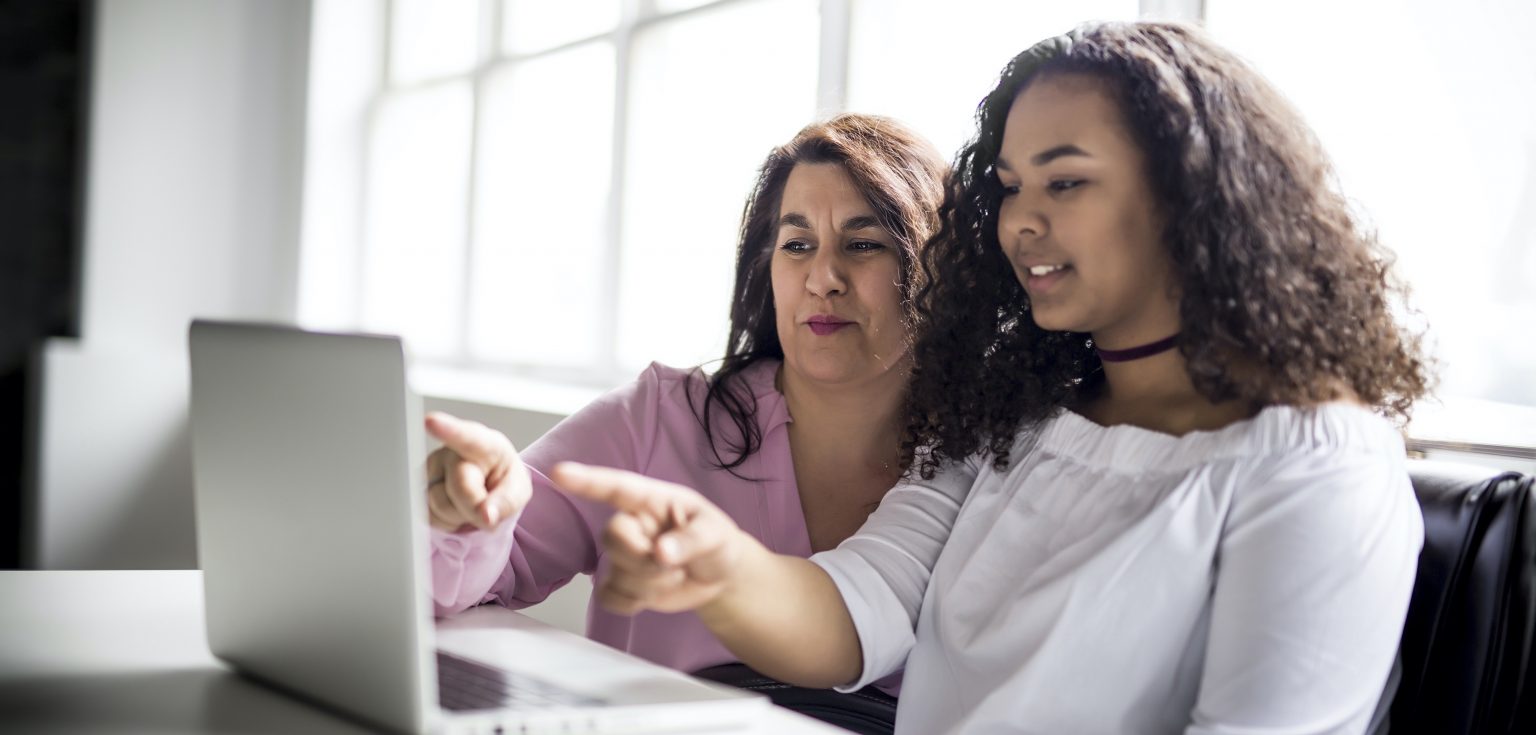Fordham’s Graduate School of Education is continuing to help Bronx families and their college-bound students complete financial aid forms, despite the ongoing challenges posed by the COVID-19 pandemic.
“The challenge is doing this while students are sitting at home. The technology may pose an issue at times. Not only that, there may be only one computer at home. But we’re still doing it … we want to make sure that the immigrant students and families get the information they need, especially at this time,” said Eva Garcia, executive director of the New York City Regional Bilingual Education Resource Network (RBERN) at Fordham.
Since 2017, RBERN, a state-funded center at the Graduate School of Education’s Center for Educational Partnerships, has partnered with outside organizations to help non-English dominant families complete Free Application for Federal Student Aid (FAFSA) forms for their children. In past years, many English language learning students and their immigrant families attended in-person workshops at the Rose Hill campus, where volunteers sat beside them and helped them fill out applications on computers.
This fall, RBERN is holding five virtual sessions on Saturdays for students and their families from five high schools in the Bronx, East Harlem, and Queens: Richmond Hill High School, Esperanza Preparatory Academy, DeWitt Clinton High School, the International School for Liberal Arts, and the Theatre Arts Production Company School. RBERN is collaborating with high school guidance counselors; College Bridge Cafe, a community-based organization in the Bronx; and Fordham’s sister RBERN at New York University.
The first virtual workshop was held on Oct. 10 via Zoom. Around 30 families across New York City attended a one-hour financial aid orientation and met individual volunteer facilitators in breakout rooms, where they received assistance and language interpretation in real time. A few days before, RBERN also hosted technology support sessions to help families understand how to use Zoom and prepare the documentation needed to complete their FAFSA forms.
The volunteers are teachers, counselors, and people who support students at the high school level, said Garcia.
“Every year I participate, I am reminded of my high school self, taking advantage of this event,” facilitator Erica DeJesus wrote in an email. “As a first-generation student I had no idea where to begin, and it was because of events like these that I was able to make it to and through college.”
Most of the families are native Spanish speakers. In an interview conducted on Oct. 31 by Sara Martinez, a resource specialist at Fordham’s RBERN, one father reflected on how the FAFSA workshop helped secure his son’s future.
“I have a very intelligent son, and his teachers have advised that he should go to college … but we do not have the finances to do that,” said Jose Azana, a father from Ecuador who now lives in Manhattan with his family. “I got COVID and lost my job because of COVID. We need a scholarship. We need financial help.”
Azana said the most difficult part about filling out the FAFSA form was the section on taxes. He files his taxes every year, but it still wasn’t easy, he said. His son, a high school senior at Esperanza Preparatory Academy in East Harlem, agreed.
“It was alright to participate online. It was the only way to do it right now to get to a college next year,” said Andres, potentially a first-generation American college student who is interested in computer science. “The workshop was useful because it will make it possible to continue my education in the future.”
Fordham’s RBERN is planning on hosting an additional virtual workshop for any family on Nov. 14 or Dec. 5, in addition to the five aforementioned workshops.

